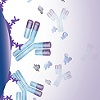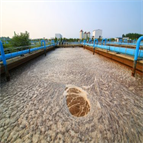Find methods for your needs
Refine by Feature
Displaying 1-4 of 4 results for Tag: Q Exactive MS
High-precision, automated peptide mapping of proteins
Instrument Type: UHPLCThe biopharmaceutical industry continues to develop protein-based biotherapeutics in increasing numbers. Due to their complexity and biotechnological production, there are many attributes that need to be analyzed to guarantee their safety and efficacy. Peptide mapping is used to measure several critical quality attributes (CQA) required for the characterization of any biotherapeutic protein. The analysis is used to confirm that the correct sequence has been expressed for the protein and to check for post-translational and chemical modifications.
Identification and Quantitation of Plastic Additives in Medicine Containers by HR LCMS, GCMS and ICPMS
Instrument Type: LCMSMSPurpose: Identification and Quantitation of Plastics Additives in Medicine Containers by HR LCMS, GCMS and ICPMS. Methods: HR-LCMS, GCMS and ICPMS and data processing software. Results: Comprehensive analysis of extractable for medicine container by multiple techniques, and data analysis software. Confident component detection, unknown structure identification, and quantification were achieved.
A Novel Screening Method for Anthropogenic Sewage Pollutants in Waste Water, Ground Water and Drinking Water Samples by LC-HRAM Analysis
Instrument Type: LCMSThere is a growing public concern about potential contamination of water and the environment with anthropogenic compounds and their degradation products and possible negative impacts on nature and public health. We describe a method that uses the Thermo Scientific Q Exactive mass spectrometer with an Accela Open Autosampler to fully automate the analysis of waste water and drinking water for anthropogenic compounds down to low ppt concentration levels without time consuming solid phase extraction.
Validated Method for the Analysis of Lipophilic Marine Biotoxins in Bivalves by Liquid Chromatography-High-Resolution Mass Spectrometry
Instrument Type: LCMSA harmful algal bloom is a serious environmental problem that results when the population of microscopic algae in a water system rapidly increases. The algae have the ability to produce marine biotoxins (MBTXs), which are dangerous to humans and other aquatic life. These biotoxins can accumulate in filter-feeding bivalve mollusks and, in turn, pose significant food safety risks to humans who ingest the shellfish, including gastrointestinal illnesses or neurological disorders. We describe a UHPLC with HRMS/MS method that delivers excellent results in the quantitative analysis of MBTXs.




